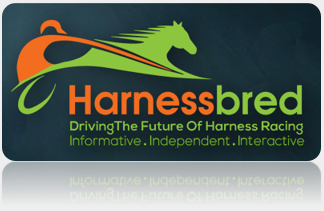 “I’m not one to delve into the mystical, but our horses all seem to know that some people are different. And they react accordingly.”
“I’m not one to delve into the mystical, but our horses all seem to know that some people are different. And they react accordingly.”
That is the explanation from Mike Bailey, Administrator for Southland Riding for the Disabled, when asked why horses provide such a unique experience for the participants.
“For those with a disability, Riding for the Disabled is great therapy.”
Home to four Standardbreds, the Southland Riding for the Disabled branch was first established in 1981, when a local school formed the group to assist with their disabled students.
In 1989 the Southland RDA relocated to its current location in Otatara, where they have arena facilities and under cover access allowing for year-round activities.
Riding for the Disabled is a place where both youths and adults can explore riding as therapy to help improve various aspects of their lives – from physical, emotional, mental and spiritual.
The organisation relies heavily on its volunteers, most of which have had some connection with a family member or friend who has benefited from time spent at the RDA in the past.
“Our volunteers who help our riders are vital. The time they give so freely provides such a valuable contribution to our wider community, it would be impossible for us to thank them to the extent that they deserve,” stressed Bailey.
And the demand for the resource is huge.
“This term we have 28 riders riding with us once a week on a Tuesday,” Bailey said. “By the end of the year we will have had around 50 different riders through. We ride once a week for around 9 – 10 weeks of the school term, with a Gymkhana on the last day each term to give the riders something to look forward to.”
The four Standardbreds that are ‘equine tutors’ include Franco Harrison (three wins, two for Cran Dalgety and one for Greg and Nina Hope) and Zen Warrior (also three wins, for trainer Brent Shirley) and they are part of the equine team along with two thoroughbreds and one miniature pony.
In the past the centre has also been home to dual Group Three winner, Vi Et Animo, who was on site soon after he finished racing, before heading on to a career as a riding hack.
“Standardbreds are perfect for the RDA. Having raced in carts they are used to having an arrangement of gear on them and the noise that goes with that gear,” said Bailey. “So having a set of handle bars on them, for example, is more of a natural thing for them.”
“They are also calmer than their thoroughbred counterparts.”
The impact of an equine interaction has far reaching effects on those who attend the RDA, and they come for various personal reasons.
“A number of our riders aren’t here because they have a disability; sometimes they’re here because they get in trouble at school. So they come out here and get put in charge of something ten times their size, and that animal responds to them. It gives them a sense of control,” explained Bailey. “They also get to help look after the horse and go through the grooming, helping us change the gear now and then, and it can give them a routine in their own lives.”
“They’re getting an education outside of the classroom and most really respond to that.”
His involvement with the RDA has been a personal journey for Bailey also.
“For my own daughter who has Autism, it was about trying to build up her core muscles. To learn to sit up straight worked a charm for her. Being seated, or lying, in different positions causes different muscles to work in different ways.”
The care and joy the Standardbreds pass on to the students at Southland RDA is a mutual feeling shared between both student and horse.
“Our riders just adore our horses,” Bailey said.

Approved By Dean Baring www.harnessbred.com
Driving The Future Of Harness Racing

